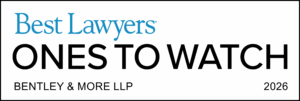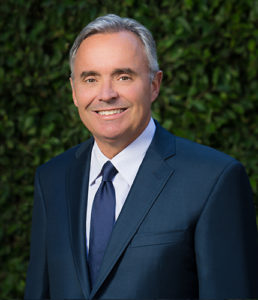Anaheim Brain Injury & TBI Lawyers
An Anaheim brain injury lawyer at Bentley & More LLP fights to help TBI victims secure compensation from the responsible party. We understand how crashes along Harbor Boulevard, construction-site falls, and theme-park incidents can upend work, relationships, and independence. Our team is ready to negotiate on your behalf or take the fight to the courtroom.
From our Newport Beach headquarters, our trial-ready team brings extensive experience handling complex TBI litigation. When necessary, we partner with neurologists, neuropsychologists, and life-care planners to capture the real impact on memory, mood, and daily life. While you focus on healing, we build the case.
Your first conversation is free and confidential. Call Bentley & More LLP at (949) 870-3800 to get started on your brain injury compensation claim.
Key Takeaways
- Brain injuries may involve “invisible” damage that CT scans and standard MRIs may not detect, requiring neuropsychological testing and advanced imaging to document cognitive impairments and prove your case.
- California personal injury claims must be filed within two years of the injury date, but government entity claims require notice within six months, making immediate legal consultation critical.
- Medical malpractice TBI cases now have higher damage caps under AB 35, with non-economic damages increasing annually from $350,000 in 2023 toward $750,000 by 2033.
- Even a mild TBI can cause lasting problems with memory, concentration, emotional regulation, and executive function that significantly impact earning capacity and quality of life.
- Brain injury settlements require life care planning that accounts for decades of medical treatment, cognitive rehabilitation, home modifications, and potential nursing care costs.
Why Choose Bentley & More LLP for Your Brain Injury Case
 Brain injury litigation demands attorneys who grasp both the medical complexities of TBI, the profound life changes these injuries cause, and how they relate to your injury case. Since 2016, our firm has built its reputation handling catastrophic cases that other firms find too challenging or resource-intensive to pursue effectively.
Brain injury litigation demands attorneys who grasp both the medical complexities of TBI, the profound life changes these injuries cause, and how they relate to your injury case. Since 2016, our firm has built its reputation handling catastrophic cases that other firms find too challenging or resource-intensive to pursue effectively.
Greg Bentley and Keith More personally handle each brain injury case, bringing decades of combined experience to your claim. We understand that brain injuries affect not just victims but entire families, requiring compassionate representation alongside aggressive advocacy. Our boutique size allows us to dedicate substantial time and resources to documenting how your TBI impacts daily life, relationships, and future potential.
Our contingency fee structure means you pay nothing unless we recover compensation. This arrangement allows brain injury victims to access sophisticated legal representation while focusing on recovery. Call (949) 870-3800 for a free consultation about your TBI case.
What is a Traumatic Brain Injury?
Traumatic brain injuries occur when external forces damage delicate brain tissue, disrupting normal function in ways that may not immediately appear on standard medical imaging. Understanding how these injuries affect the brain helps victims and families recognize symptoms and seek appropriate treatment.
Types of Brain Injuries
Brain injuries range from mild concussions to severe trauma requiring immediate neurosurgical intervention:
- Mild TBI/Concussion: Brief loss of consciousness or altered mental state, often with normal CT scans, but lasting cognitive symptoms
- Moderate TBI: Extended unconsciousness or amnesia lasting hours to days, typically with visible imaging abnormalities
- Severe TBI: Prolonged coma or severe cognitive impairment, usually requiring extensive rehabilitation
- Diffuse Axonal Injury: Widespread damage to nerve fibers from rotational forces, common in vehicle accidents
- Coup-Contrecoup Injuries: Brain damage at the impact site and opposite side from the brain bouncing within the skull
- Penetrating TBI: Objects entering the skull, causing focal damage and increased infection risk
The severity classification for a brain injury doesn’t always predict long-term outcomes. Some mild TBI victims experience persistent symptoms affecting work and relationships, while certain severe TBI patients make remarkable recoveries with proper treatment.
Common TBI Symptoms
Brain injury symptoms vary widely depending on injury location and severity. Physical symptoms can include persistent headaches, dizziness, nausea, sensitivity to light and sound, sleep disturbances, and seizures. Many victims experience these symptoms intermittently, making documentation crucial for claims.
Cognitive symptoms may be disabling for working adults. Memory problems, difficulty concentrating, slowed processing speed, and impaired executive function affect job performance and daily activities. These deficits may not manifest immediately, developing weeks or months post-injury as victims return to demanding tasks.
Emotional and behavioral changes can also strain relationships and complicate recovery. Depression, anxiety, irritability, and personality changes are common after TBI. Some victims experience reduced impulse control or inappropriate social behavior that damages careers and marriages.
Common Causes of Brain Injuries in Anaheim
 Anaheim’s unique mix of tourist attractions, busy highways, and ongoing construction creates numerous brain injury risks. Some causes of traumatic brain injuries in Anaheim include:
Anaheim’s unique mix of tourist attractions, busy highways, and ongoing construction creates numerous brain injury risks. Some causes of traumatic brain injuries in Anaheim include:
- Vehicle Accidents: High-speed collisions on SR-91 and I-5, tourist area crashes near Disneyland, motorcycle accidents on Harbor Boulevard, pedestrian strikes at busy intersections, and commercial vehicle collisions with severe impact forces
- Falls and Workplace Injuries: Construction falls from Platinum Triangle high-rises, theme park employee accidents from equipment malfunctions, hotel worker injuries in stairwells and loading areas, and slip-and-fall incidents on wet surfaces
- Sports and Recreation: Youth concussions from football and soccer programs, adult injuries at local gyms and sports facilities, cumulative damage from repeated impacts, and equipment-related accidents at recreational venues
- Tourist-Related Incidents: Rideshare accidents during peak seasons, distracted driving near attractions, out-of-state insurance complications, and increased pedestrian traffic creating strike risks
- Construction Site Accidents: Falls from scaffolding and ladders, struck-by falling objects, equipment malfunctions, and inadequate fall protection at Resort District expansion sites
These varied injury sources can involve complex liability issues and multiple insurance policies. For example, tourist-related crashes may implicate out-of-state coverage, workplace injuries trigger workers’ compensation alongside third-party claims, and commercial vehicle accidents invoke federal regulations with higher policy limits. A thorough investigation can help identify responsible parties and available insurance resources.
Proving Your Brain Injury Case
Successfully proving brain injury claims can require comprehensive medical documentation, expert testimony, and careful presentation of how TBI affects daily life. A comprehensive claim demonstrates not only that you sustained a TBI, but also the losses you have and will suffer as a result.
Medical Evidence and Documentation
Advanced imaging techniques can reveal brain damage invisible to standard CT scans. Building strong medical evidence requires multiple approaches to document your injury’s full extent.
Medical evidence that can support brain injury cases includes:
- Advanced Neuroimaging: Diffusion tensor imaging (DTI) shows white matter tract damage, while functional MRI reveals altered brain activation patterns during cognitive tasks
- Neuropsychological Testing: Comprehensive evaluations measuring memory, attention, processing speed, executive function, and emotional regulation compared to estimated pre-injury functioning
- Emergency Records: Initial Glasgow Coma Scale scores, CT scan results, and emergency physician observations establishing injury severity
- Treatment Documentation: Ongoing medical records from neurologists, physiatrists, therapists, and other specialists showing symptom progression
- Medication Records: Prescriptions for headache management, cognitive enhancement, mood stabilization, and sleep disorders demonstrating ongoing medical needs
These tests provide objective evidence of injury, and consistent documentation across multiple providers strengthens claims by showing symptom patterns rather than isolated complaints.
Life Impact Documentation
Brain injuries affect every aspect of daily life in ways that medical records alone cannot capture. Comprehensive documentation of these impacts proves essential for fair compensation.
Key evidence documenting life impacts includes:
- Personal Journals: Daily logs of cognitive struggles, headache patterns, mood changes, and activity limitations
- Family Observations: Spouse and children statements about personality changes, relationship strains, and lost family activities
- Employment Records: Performance reviews showing declined productivity, emails demonstrating confusion, and accommodation requests
- Video Comparisons: Pre-injury videos showing cognitive abilities contrasted with current functional limitations
- Social Documentation: Changes in friendships, hobbies, and community involvement showing reduced quality of life
Family members’ observations carry particular weight in showing personality changes that victims themselves may not recognize. Coworker testimony about observed workplace struggles may also provide third-party validation of cognitive deficits.
California Laws Affecting Brain Injury Claims
 California law provides important protections for brain injury victims while establishing specific procedures and deadlines that must be followed to preserve claims.
California law provides important protections for brain injury victims while establishing specific procedures and deadlines that must be followed to preserve claims.
Statute of Limitations
Personal injury claims, including most brain injury cases, must be filed within two years of the injury date under California Code of Civil Procedure Section 335.1. This deadline applies regardless of when symptoms fully manifest or when you connect problems to the initial trauma.
Government entity claims face much shorter deadlines. If your brain injury resulted from dangerous public property, government vehicle accidents, or public employee negligence, you must file an administrative claim within six months. Missing this deadline typically bars recovery regardless of injury severity.
The discovery rule may extend deadlines in limited circumstances where brain injury symptoms weren’t immediately apparent. However, relying on these exceptions without legal guidance risks losing all compensation rights. Immediate consultation protects your interests while focusing on recovery.
MICRA and Medical Malpractice Cases
Brain injuries caused by medical negligence, such as surgical errors, anesthesia mistakes, or delayed stroke treatment, fall under California’s Medical Injury Compensation Reform Act (MICRA).
While economic damages for medical expenses and lost earnings remain uncapped, MICRA still limits pain and suffering recovery for devastating brain injuries. However, recent legislative updates have changed compensation amounts. For brain injuries not resulting in death, non-economic damages started at $350,000 in 2023, increasing $40,000 annually until reaching $750,000 in 2033. Wrongful death cases began at $500,000, increasing $50,000 yearly toward $1 million. These caps can apply up to three times, depending on the defendant’s categories.
Compensation for Brain Injury Victims
Brain injury compensation covers immediate and lifelong needs, including economic and non-economic damages.
Economic damages encompass substantial current and future medical expenses, along with lost income and benefits due to diminished earning capacity. Life care planning is crucial for projecting long-term costs, including cognitive rehabilitation, ongoing medical management, technological assistance, home modifications, and attendant or institutional care.
Non-economic damages address pain, suffering, and loss of enjoyment, plus loss of consortium for spouses and children due to relationship changes and family impact. California doesn’t cap non-economic damages except in medical malpractice.
The types and amount of damages available will depend on the specifics of your case. Severity of injuries and the long-term impact on your life are just two of many factors that should be considered when calculating damages and determining a fair settlement amount.
California Traumatic Brain Injury Claims and Insurance
 Dealing with insurance companies while you recover may feel overwhelming. A lawyer can help handle these conversations for you and manage the complex process of filing a TBI claim. They can make sure communication with adjusters is professional and accurate, protecting your rights from the very beginning.
Dealing with insurance companies while you recover may feel overwhelming. A lawyer can help handle these conversations for you and manage the complex process of filing a TBI claim. They can make sure communication with adjusters is professional and accurate, protecting your rights from the very beginning.
Insurance companies may make an early settlement offer, but these offers might not account for the true, long-term costs of your injury. Our lawyer can assess the value of your TBI claim, considering future medical care, lost wages, and other expenses.
Many types of insurance may apply to a TBI case, including the at-fault party’s coverage and your own policies. Our attorneys can identify potential sources of compensation, such as underinsured motorist coverage, if the other driver’s policy is insufficient. This helps you obtain fair compensation, allowing you to focus on your recovery and family instead of worrying about bills.
FAQ About Anaheim Brain Injury Claims
Do I Need a Lawyer for a Brain Injury Claim in California?
Brain injury claims involve complex medical evidence and substantial future damages that insurance companies aggressively dispute. Attorneys understand how to document cognitive deficits, work with brain injury experts when necessary, and calculate lifetime care costs.
How Long Do I Have to File a Brain Injury Lawsuit in California?
Most brain injury lawsuits must be filed within two years of the injury date. However, claims against government entities require filing notices within six months. Medical malpractice cases have different requirements and deadlines. Missing deadlines eliminates compensation rights regardless of injury severity, making immediate legal consultation essential.
What Compensation Can I Recover for a TBI?
Brain injury victims may be able to recover medical expenses (past and future), lost wages and earning capacity, pain and suffering, and loss of life enjoyment. Severe cases may include home modification costs, attendant care, and loss of consortium claims for spouses. California doesn’t cap damages except in medical malpractice cases under MICRA.
How Do I Prove a Mild TBI if Imaging Is Normal?
Many mild TBIs show normal CT scans and standard MRIs despite causing real symptoms. Neuropsychological testing documents cognitive deficits, advanced imaging like DTI may reveal subtle damage, and symptom consistency across multiple evaluations establishes injury patterns. Detailed documentation of functional changes at work and home provides crucial evidence.
Should I Talk to the Insurance Company after a Suspected Concussion?
Avoid giving recorded statements to insurance companies while experiencing brain injury symptoms. Confusion, memory problems, and medication effects can lead to inconsistent or incomplete statements that damage claims. Consult an attorney before discussing your injury with insurance adjusters beyond basic accident reporting.
Getting Help After a Brain Injury

Greg Bentley, Anaheim Brain Injury & TBI Lawyer
Brain injuries shatter lives in an instant, leaving victims and families struggling to understand what happened and how to move forward. The path to recovery requires not just medical treatment but comprehensive legal advocacy to secure resources for lifetime care needs.
Bentley & More LLP provides the sophisticated representation that brain injury cases demand while maintaining the personal attention these life-changing injuries deserve. We understand that behind every brain injury case is a person whose dreams, relationships, and identity have been fundamentally altered.
If you or a loved one suffered a traumatic brain injury in Anaheim or anywhere in Orange County, the attorneys at Bentley & More LLP are ready to fight for comprehensive compensation. Contact us today at (949) 870-3800 for a free consultation about your brain injury case with an experience Anaheim personal injury lawyer.
Bentley & More, LLP – Office Location
4931 Birch Street
Newport Beach, CA 92660
Ph: (949) 870-3800
What Our Clients Say
Exceptional Legal Representation – Highly Recommend!
“We can’t thank Keith More and Dane Gilliam enough for the incredible job they did handling our son’s workers’ compensation case. Our son experienced a debilitating severe traumatic brain injury involving a golf cart while working in Malibu. After a rough start with a previous attorney who completely mishandled the case, Keith and Dane were a breath of fresh air. From our very first consultation, they were professional, compassionate, and fully committed to achieving the best possible outcome.
They took the time to explain every step of the process, answered all our questions with patience and clarity, and kept us informed throughout. What really stood out was their responsiveness — if we called, they either picked up right away or returned our call promptly.
Their negotiation skills were outstanding. They secured a settlement that far exceeded our expectations and brought us peace of mind during a very stressful time.
If you’re looking for a workers’ comp firm that genuinely cares and will fight for your rights, look no further. We are beyond grateful for their support and highly recommend them to anyone in need of expert legal help.” – Ray Johnson ⭐⭐⭐⭐⭐
“In 2011, my 19 year old son was injured in a work accident resulting in an acute TBI. Not knowing where to turn for the best help, Attorney Keith More was recommended to our family and he walked us through every hurdle and valley we endured. He made sure my son received the best medical care and financial stability that would be necessary for the rest of his life.
Almost 12 years later and my son has improved miraculously because of the care he continues to receive because we were able to set him up with a long term financial plan and care for his needs at home.
Even today when we need advise on any issue related to my son Carlos, Keith has continued to provide his excellent care.” – Tessa Betance ⭐⭐⭐⭐⭐
“Unfortunately, my husband was in a work related accident. We hired and fired lawyers that seemed to be best in CA for brain injuries, but were actually terrible and didn’t help at all. Keith More was our third lawyer we hired and oh how I wish he was our first! Him and Dane have been so supportive and helpful in making sure we understood what was going on and helping my husband get the care he needs! From our experience, the survivors of TBIs need so much help and thankfully Keith More understands that! If you are looking for a lawyer that cares about you and willing to understand your injuries, start with Keith More and his team. You won’t be disappointed!” – Amber Carey ⭐⭐⭐⭐⭐
Read more of our Google reviews.


